Sailboat vs. Powerboat: What's the Best Liveaboard?
So you've chosen to live on a boat—the first step towards a pretty awesome dream. Now you gotta start figuring out the logistics. First of which is the choice of the kind of boat you wanna be using - sailboat or a powerboat?
This article gives you all you need to know to make that choice, all the pros, and cons of both so you can easily decide which one is a better liveaboard for you.
What's the best liveaboard, sailboat or powerboat? Generally, sailboats tend to be better liveaboards, since they are more spacious, cheaper to buy, cheaper to operate, and provide better peace of mind than powerboats. Sailboat hulls are also among the most stable designs available. Powerboats are faster, but typically also smaller, and are a lot more expensive to run.
Here are the best liveaboard for different categories:
| Category | Best liveaboard? |
|---|---|
| Comfort | Tie |
| Speed | Powerboat |
| Peace of mind | Sailboat |
| Cost | Sailboat |
| Ease of use | Powerboat |
| Communication | Sailboat |
| Ecology | Sailboat |
| Romance | Sailboat |
Let's dive deeper to help you decide what is best for you!
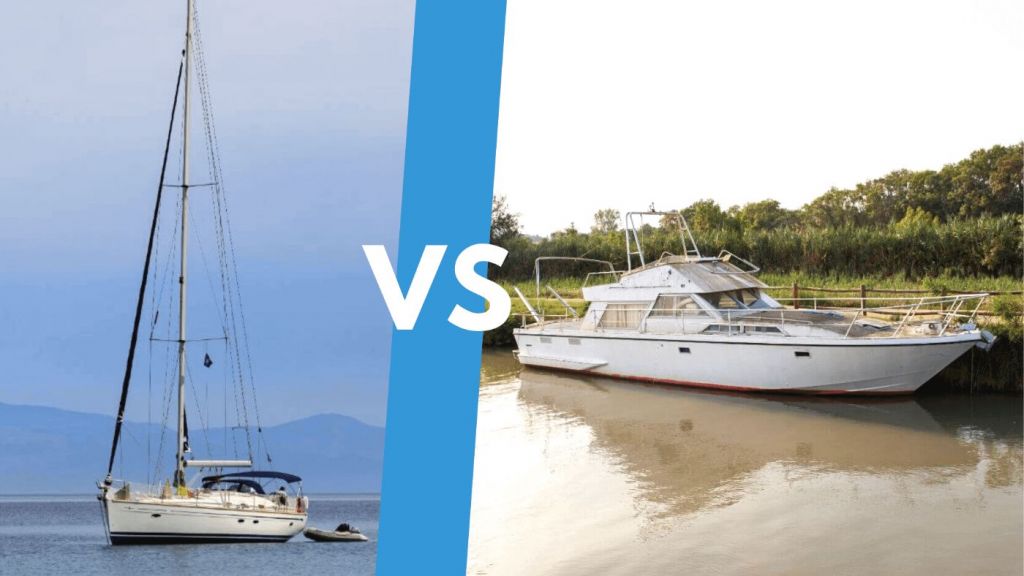
Considerations for a liveaboard boat:
What Type of Boat is the Best Liveaboard?
In deciding which boat type is best to live on, you need to consider the following categories:
- Comfort - here it is a tie
- Speed - here powerboats win
- Peace of mind - sailboats are a winner
- Cost - sailboats win again
- Ease of use - powerboats take the prize
- Communication - slight win for sailboats
- Ecology - sailboats win
- Romance - subjective, but sailboats tend to win
First of all, a small word of caution - while researching the age-old 'sailboat vs powerboat' question, be careful when reading opinions - instead, look at simple facts. Unfortunately, this is a bit of a PC vs Mac kind of situation, with two zealous camps that would swear by their choice no matter what. Objectivity is tough to find.
So remember - it is all about facts and how these suit your specific needs. I myself do have a bias but will keep it to myself. I've spent a fair amount of time on both sailboats and powerboats, so I'll just be honest, and will let you choose.
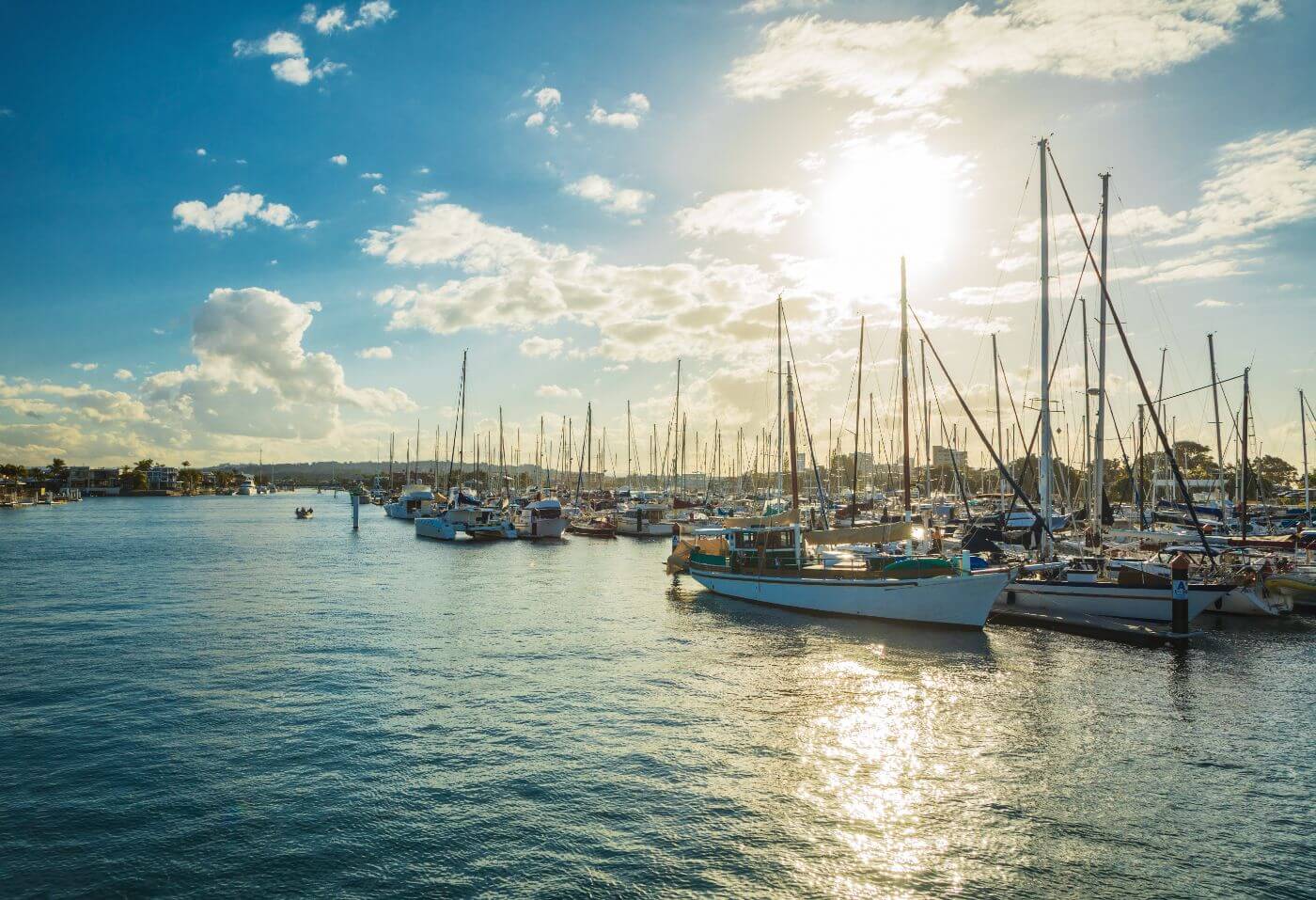
Comfort
Since we are talking about liveaboards, let's start with comfort, because over time, that will become one of the most important aspects for most.
There is no clear 'winner' in this category, as there are pros and cons to both, but when we get to the subcategories, things start to be a bit more clear.
So, for instance, when it comes to space, powerboats tend to be more open. By design, they are usually boxier, which makes for a larger amount of interior space.
Sailboats, on the other hand, take hydrodynamics into account, so their hulls are narrower and sleeker, which is great for efficiency but eats away at the space.
The same goes for deck space. Since on a powerboat, there are no masts, sails, or lines to get in your way, it is more comfortable to move around. Powerboats also often have a flybridge, creating another 'floor' which adds to the overall usable space. And adds a whole lot to visibility.
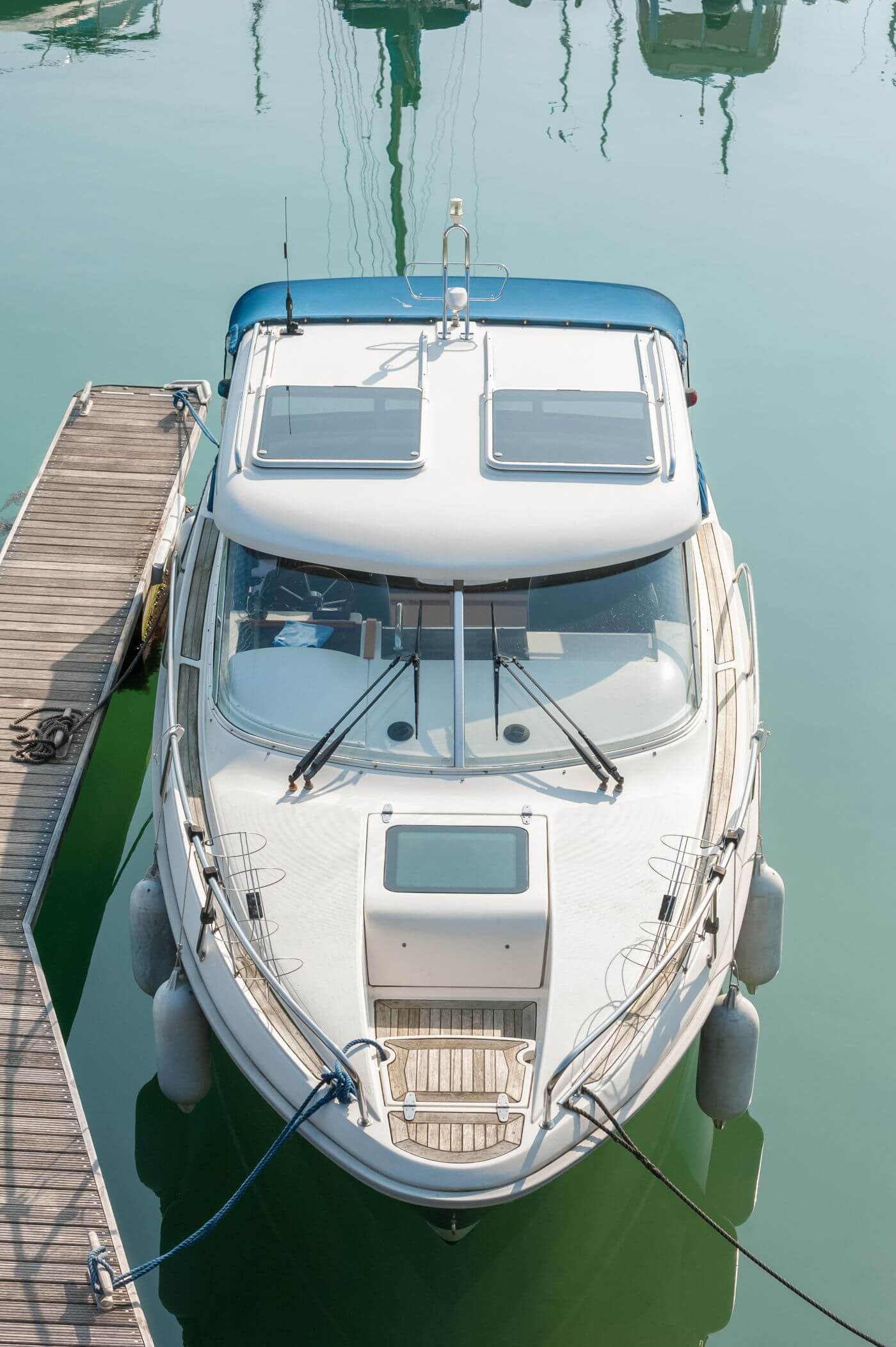
Things change quite dramatically when we get moving or into rougher seas, though. Thanks to the heavy and deep-reaching keels, sailboats are way more stable and will keep more level.
As opposed to powerboats that don't have these keels, have shallower drafts, and as a result, high center of gravity, so the movement of the waves translates to the hull a lot. They dance around on waves, so expect plenty of broken mugs and hard times when cooking.
The seasick ones will suffer, and so will comfort. This is to such an extent that smart people of the world developed gyroscopes for powerboats that keep them more level. But that is a solution for larger boats only, and it's also an expensive and power-consuming one.
Then again, when under sail, sailboats heel, especially if going 'against' the wind. Meaning your world will suddenly shift potentially tens of degrees. Those who don't like heeling, be aware.
When talking about comfort, I gotta mention the noise and vibrations. When I was speeding around the islands of Croatia on a 46 ft Jeanneau powerboat, I honestly dreaded the moments under power and couldn't wait to get to my destination so I could turn the engine off. Even if you enjoy the roar of a motor, it gets seriously annoying after a while.
Speed
For liveaboards, speed usually isn't a priority, but you should know what to expect from your purchase.
Yes, powerboats are generally faster than sailboats. The average cruising speed of a sailboat is somewhere around 6 - 8 knots, while powerboats can easily go around 20 or more if you put your foot down.
But wait, there is a twist! You see, the hull speed is the same for both sailboats and powerboats. Once you want to go over it, the power demands increase drastically, and the power to speed efficiency curve just drops to hell.
Now whether that is good or bad depends on whether you mind that or not. We will discuss cost, comfort, and other implications of high fuel consumption later. But it is safe to say that for passages where efficiency is a thing, the powerboat's power actually doesn't bring much extra speed.
But to be fair, powerboats pick a direction and go straight towards it. Wind power and direction have less influence on their speed and direction than on that of sailboats that have to tack, meaning they have to go a longer route and whose speed drops with the wind.
Peace of mind
Very important factor. After all, it is supposed to be your home, and if your home doesn't bring you comfort but rather constant stress, it isn't much of a home, is it? So peace of mind is a big part.
Now there isn't a huge difference between the reliability of a powerboat and a sailboat. They both respond similarly to crashes and waves rolling over them, though a sailboat is harder to capsize.
What needs mentioning is the means of propulsion. Accidents happen, and if your engine breaks on a powerboat, you will either have to tow yourself with a dinghy if you have one, or pay for a tow service.
Neither is a very comfortable option if you are in the middle of a long passage, hundreds, if not thousands of miles from the coast.
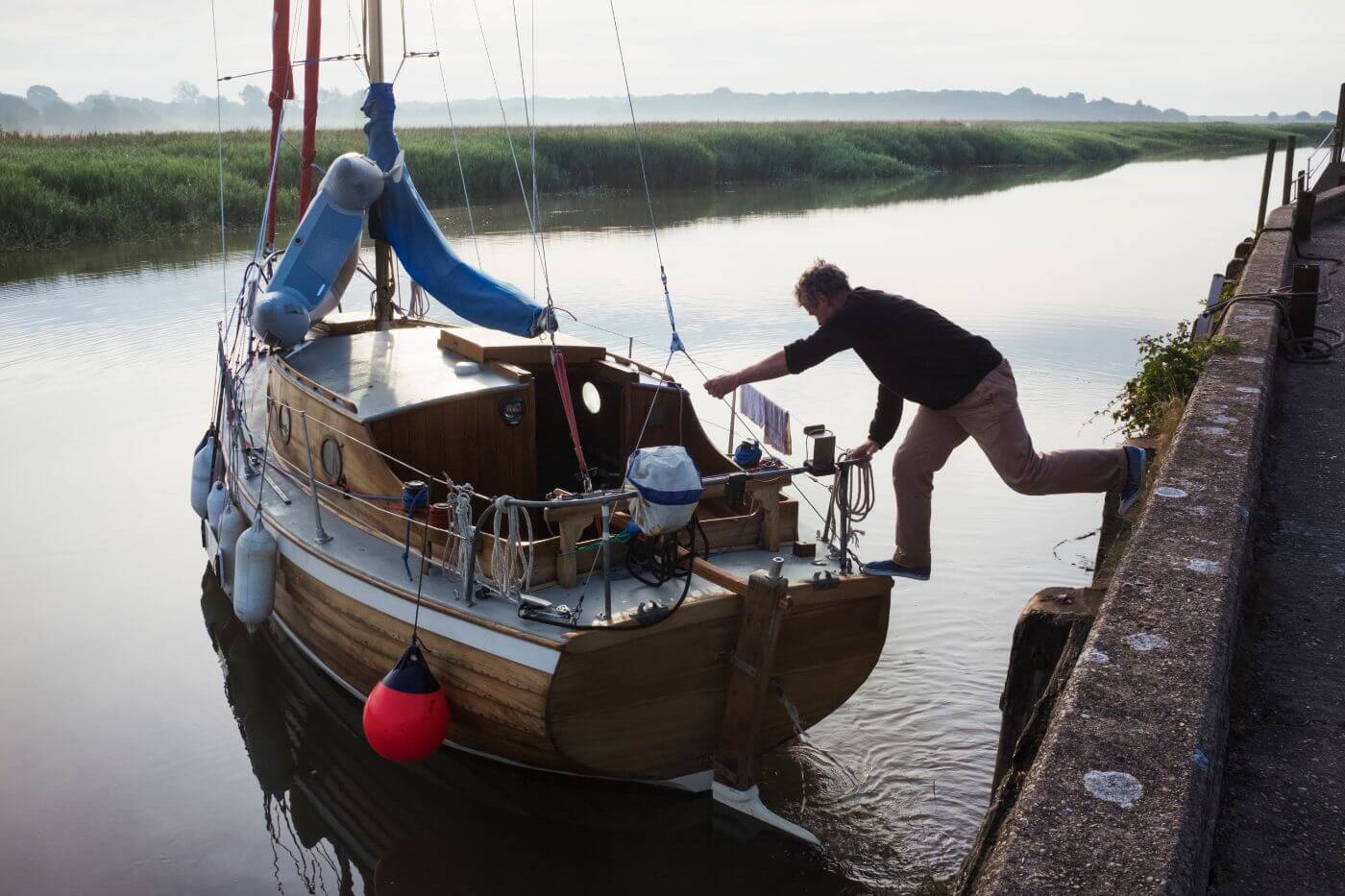
A sailboat, on the other hand, has an engine, mainsail, and the foresail, so unless all three of these break, you always have a backup. Actually, even if your sails rip and mast breaks, there is a fair chance you will be able to fashion some sort of a sail to get moving.
This ties into another topic, which is the range. A sailboat has, theoretically, an unlimited range. That gives you peace of mind when planning journeys since you won't have to calculate how much fuel to take on longer journeys and whether there are fuel stop options on the way. And if you realize your passage is too long for your diesel tank, you won't have to fill your boat with stinky fuel cans.
Unless you've got an electric engine and solar panels, that is. Which is a thing these days, one I hope to see more of.
Cost
Of course, we have to talk about the cost of it all. This will be a deciding factor for many. Let's first address what's on everybody's mind - fuel. A powerboat will consume large amounts of it, and it costs.
With a consumption of around 6 l/nm, the aforementioned Jeanneau ate up around $1,100 daily on fuel, and though we were covering quite a lot of distance that a liveaboard necessarily wouldn't, this isn't a negligible budget item for many.
Sailboats have motors too, but they don't use them that often and even if they did, all the time, because of better hydrodynamics, they need less fuel to get around.
Moving on to upkeep costs, with sailboats you'll need to pay for the maintenance of sails and rigging. Most boat owners replace sails every 5 - 10 years, and for a 30 something footer, this will cost around $4,000. Give or take a lot depending on the usage, materials, and all that jazz, but you get the point.
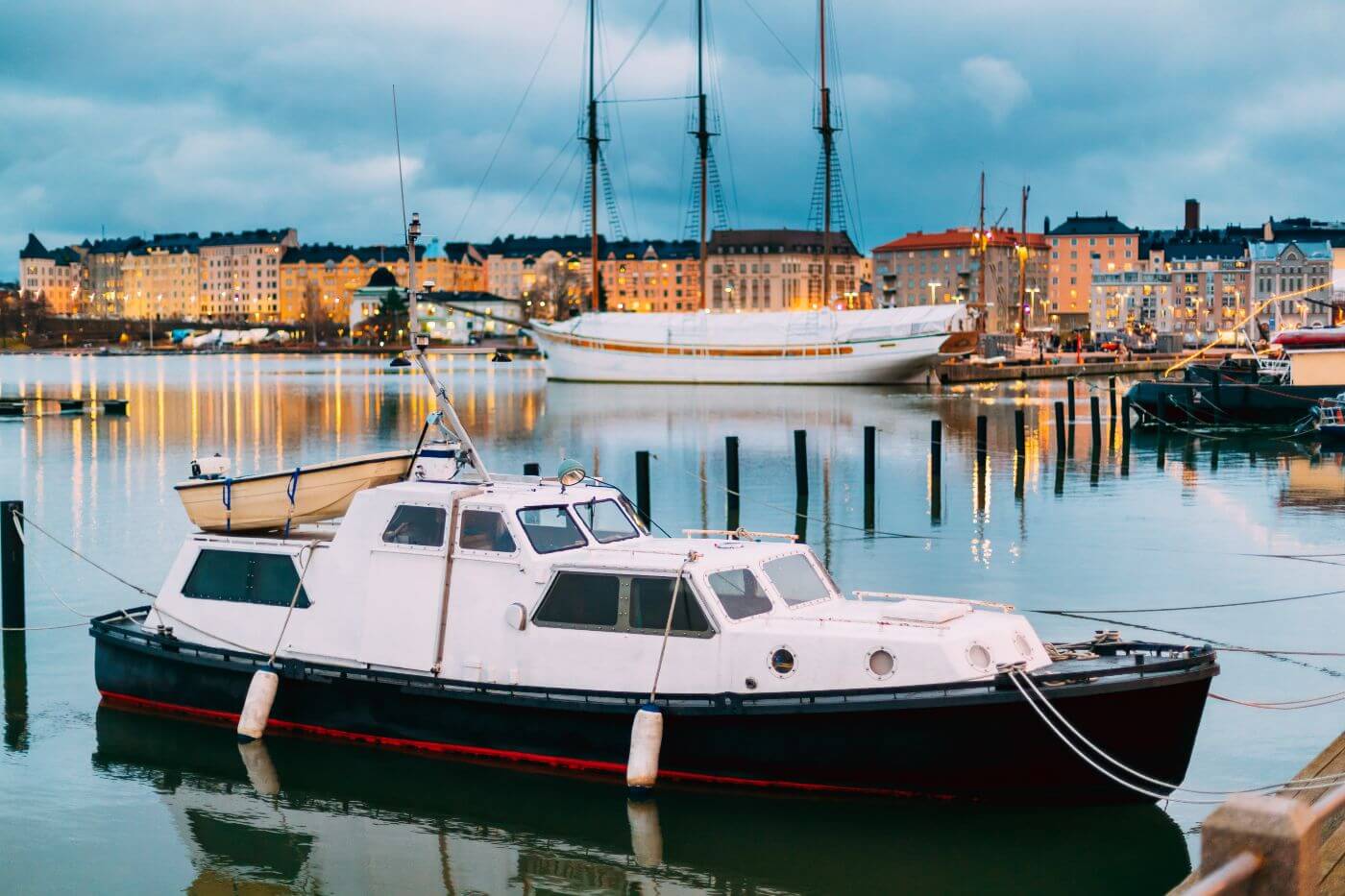
Then again, powerboat engines are significantly more expensive, and since they are used more often, they will require maintenance and replacement more often. So all in all, none is a clear winner when it comes to maintenance costs.
Last but not least, there is the purchase cost. This is a tricky one to answer - generally, powerboats are more expensive to purchase, but when buying a boat, there are so many variables to consider, like size, power, condition, equipment, that you would be better off looking at specific offers that are in your geographical and financial range than going by a rule of thumb.
Ease of use
Unlike the previous matter, this has a clear winner. Powerboats are way easier to use. They require less upfront knowledge to get from point A to point B.
If a person who has never been on a boat gets on a powerboat, I am confident they will be able to get to their destination without much hassle (if the seas are calm).
On the other hand, operating sails isn't intuitive. On the contrary, I mean - sailing against the wind? What the hell, right? Yet it is possible.
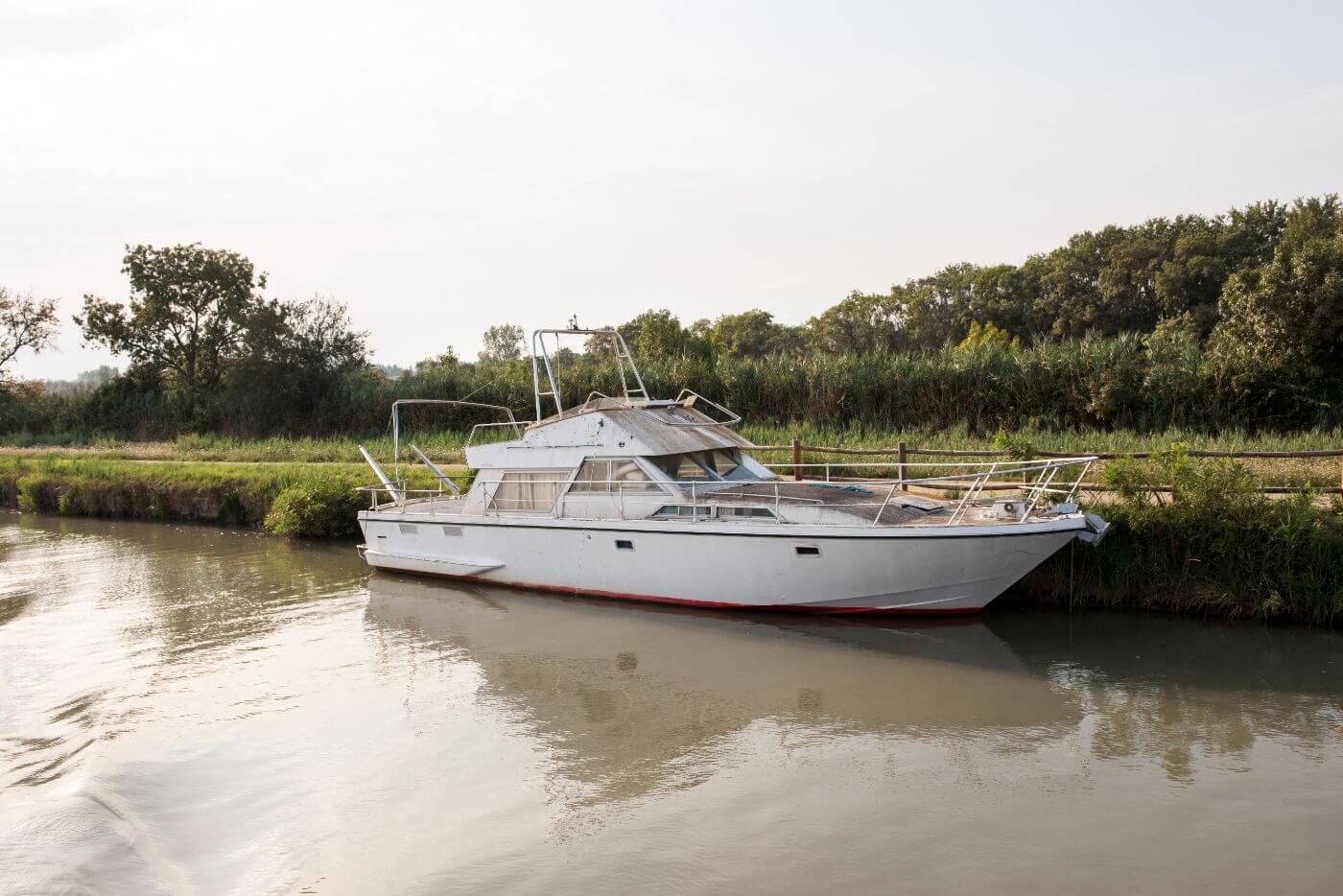
On a powerboat, you just press a lever and go; not much more effort is needed. On a sailboat, you gotta move around more and work with sails. Now whether that's a good or a bad thing I'll leave up to you.
I'm not sure if this belongs here or to the 'peace of mind' category, but powerboats have a much shallower draft.
With a sailboat, you need to be aware of your keel that goes several meters deep, and you won't be able to go to shallow places that would be reachable by powerboats.
In practice, this isn't really a thing that would make your sailing experience any different from that on a powerboat, but you gotta be mindful of it when going close to the shore.
Communication devices
This is something to think about, though it isn't often considered. The main communication tool of sailors is the VHF, which is a line of sight thing. So having a tall mast to put your transmitter on is a definite plus as you will gain miles and miles of additional range.
Then again, with satellite communications, you have to take into account mast shadow, which creates interference - something powerboats don't have to deal with.
Ecology
I know, I know, many of you are rolling your eyes now. But the greenness of it all is a hot topic these days and is becoming hotter every year (Global warming joke, get it? Haha.). So there is a fair chance that many of the aspiring boat owners take this into account too.
And the winner here is clear - unless you've got a solar-powered boat, a sailboat is a much more eco-friendly option. And your home won't be called a 'stinky' by the fellow seamen.
The Romance of it All
This one is rather intangible, and some might say unimportant - but let's be honest, it is what we all got into sailing for, not for spacious salon layouts, good mileage, or hydrodynamic hulls, but for the romance of it. Now which side you will stand on here is a matter of opinion rather than something you can measure, so I'll give you mine, and you see what you wanna do with it.
On powerboats, you get the feeling of power and speed that an equally priced sailboat just won't provide. Which is cool, I gotta give them that.
But sailing to me seems more romantic. Not in the hearts and flowers kinda way, but in the Jack Sparrow one. You feel free, the sense of adventure is there, sailboats seem to have a soul that powerboats don't.
Powerboats are a set of parts that go, but on a sailboat, all these parts put together create freedom. And yes, I kinda stole Jack Sparrow's quote here.
I've heard somewhere that when you get on a powerboat, you do it to get somewhere. But when you get on a sailboat, you're already there.
I'm not exactly sure why, perhaps it is the unlimited range, thus the possibility to theoretically go anywhere without needing much, perhaps it is the fact that a sailboat is more in tune with the sea and weather and wind, but it just feels homier.
And finding this homey feeling on the sea is what you came here for.
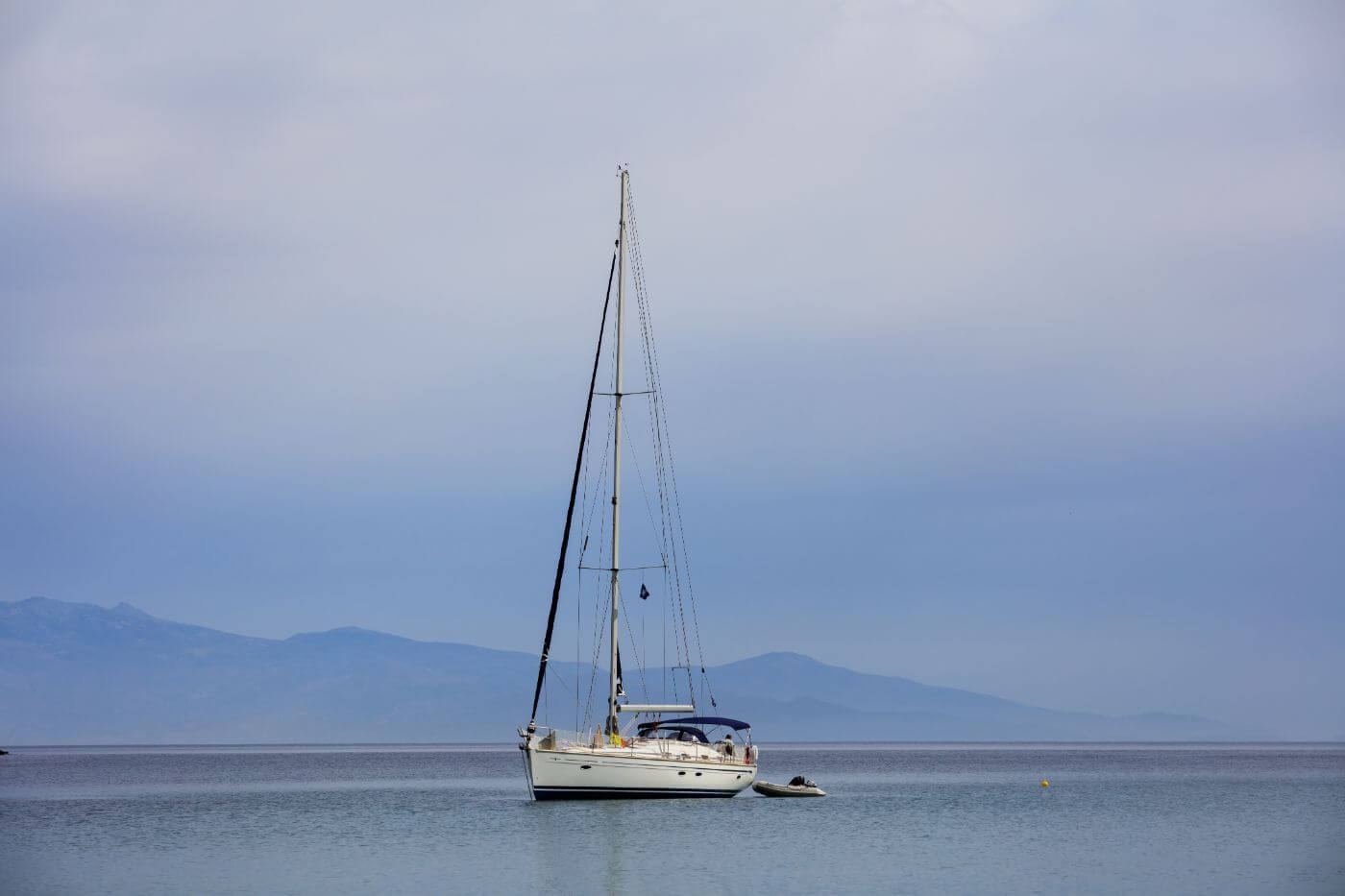
Did you find the answer to your specific question?
👍 14 👎 1
Leave a comment